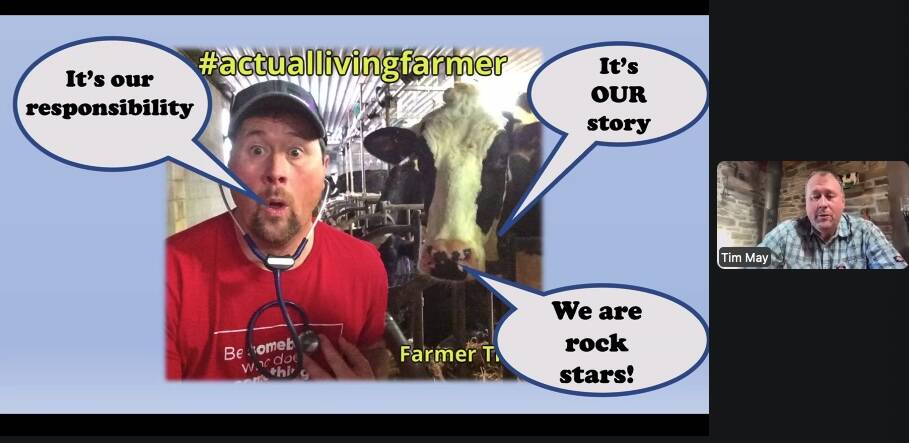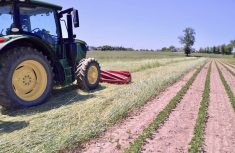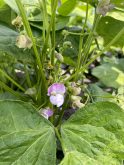Organic agriculture is not mentioned specifically in the Canadian government’s Climate Action Plan but an officer with Agriculture and Agri-Food Canada (AAFC) says she and her colleagues are working to understand how some countries have pinpointed organics as part of their response to climate change.
“We have to change the way we’re measuring success,” said Maria Paulina Forero during the Canadian Organic Trade Association’s January week-long Organic Summit.
She said there are “internationally recognized indicators” showing organic agriculture mitigates human-induced climate change and suggested AAFC needs to understand the long-term cost of agriculture on the environment. When that happens, organic will stand out for its benefits, she said.
Read Also

How stories promote farm safety
Speakers at CASA online conference explain how personal stories can be more valuable than statistics in communicating importance of farm safety
“It’s something AAFC hasn’t done before. We’re talking about topics we were not touching on before.”
Why it matters: The Climate Action Plan includes commitments to fund changes made by farmers to include more climate-friendly practices.
The discussions, taking place among the 18 AAFC officers dedicated to organics as well as representatives from the Canadian Food Inspection Agency and Global Affairs Canada, are referred to within the ministry as the Organic Community of Practice.
Forero, a bioresource engineer, likened the group to the value chain roundtables that were established for various agricultural sectors in 2003 and “revitalized” with the kick-off of Canada’s Food Policy in 2019.
She represents organics on AAFC’s Industry Engagement initiative and discussed opportunities for organic stakeholders to help shape federal programming. She chronicled a growing recognition within government of the environmental and climate-altering effects of agriculture.
Among Canada’s most recent climate action goals are supports for the adoption of practices that protect water, soil health and biodiversity. These goals were considered when forming the latest Canadian Agricultural Partnership (CAP) funding program, which aims to “enhance competitiveness” but “with an emphasis on environmental sustainability and clean growth.”
Hard targets were set for reducing greenhouse gas emissions, with AAFC among the ministries called upon to contribute. Meeting these targets “will be a key challenge,” Forero noted, “with only eight growing seasons remaining until 2030.”
Programs already announced toward these targets include the $4 billion National Climate Solutions Fund. Some of that money has already been committed over the next 10 years, including support for the Agriculture Climate Solutions and Agriculture Clean Technology programs.
Forero said she hopes the clean technology label will include support for projects that reduce food waste and calculate the true environmental costs of agricultural production.
“The Guelph Statement,” issued Nov. 21, 2021, to announce the start of federal-provincial negotiations for the new CAP, says “Canada is recognized as a world leader in sustainable agriculture and agri-food production.”
On Dec. 16, 2021, Prime Minister Justin Trudeau issued “mandate letters” to each minister. The letter for the agriculture minister called for “increased support to farmers who reduce emissions, build carbon sequestration, reduce the need for chemical use and enhance climate resiliency.”
However, Forero conceded that organic was not specifically recognized in any of those statements or support programs. She said there will be opportunities for organic sector stakeholders to argue for change.
The new AgriCommunication initiative sets out $8 million over three years for projects to connect producers and consumers and build understanding and awareness of what farmers do. Forero encouraged organic organizations to apply.
The agriculture minister’s mandate letter also referenced the Green Agricultural Plan. Forero said this was first mentioned in Canada’s Climate Action Plan but now, with a second mention, she expects consultations, probably later this year, to begin formulating the plan.
“Here is a great opportunity for the sector” to make its voice heard, she said.
What Forero believes is needed most, though, is “a coordinated approach” across federal government ministries to understand the long-term effects of agricultural production on the soil, water, climate and biodiversity.
Within that, financial sustainability of farmers must be maintained, but so must the potential for ecologically conscious farmers to reduce emissions and build resiliency to climate change, she said.
“Sustainable affordable organic agriculture can feed the world. And it should be our goal.”













